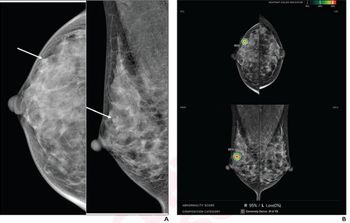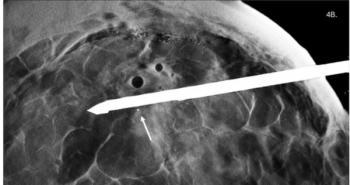
GE's multivendor service coup forces competition to regroup
Siemens and Picker are developing similar programsThe multivendor service deal forged this month between GE HealthCareServices and the Columbia/HCA hospital chain has other scannervendors shaking their heads. GE's competition is examining
Siemens and Picker are developing similar programs
The multivendor service deal forged this month between GE HealthCareServices and the Columbia/HCA hospital chain has other scannervendors shaking their heads. GE's competition is examining theagreement closely to determine its effect on equipment purchasingwhile at the same time moving forward with multivendor programsof their own.
Siemens Medical Systems of Iselin, NJ, plans to meet with Columbia/HCAofficials to better understand the agreement's impact on theirrelationship. In the meantime, Siemens plans to cooperate fullywith Columbia/HCA, according to Siemens group vice president ofimaging systems Tom Miller.
"I sent instructions to each and every one of my employeesto continue to treat Columbia/HCA hospitals as if the GE agreementdid not exist," Miller said.
But the deal does exist, to the chagrin of other vendors. Itsprovisions are sweeping and cover equipment service, purchasingand asset management (SCAN 3/15/95). Prior to the deal, Columbia/HCAhad used a combination of preferred-vendor agreements with majorcompanies, namely Picker, GE, Siemens and Philips, to meet theneeds of its approximately 200 hospital members.
Picker has already felt some impact from the deal. Bob Trebar,manager of business development and marketing at the Clevelandvendor, said Columbia/HCA executives have canceled several equipmentacquisition contracts that were in process with members of thehospital chain. Siemens saw one contract canceled, but that dealwas going to expire before the GE agreement was put in place,according to Miller. Siemens has several deliveries of imagingequipment scheduled for the upcoming months and Miller expectsthey will be fulfilled.
The prospect of future deals with Columbia/HCA members doesnot look bright for companies other than GE. The preferred-vendoragreements that Siemens, Picker and Philips had on the books withthe hospital giant appear to be on the way out. The GE relationshipis comprehensive and includes purchasing, according to James Olsen,vice president of materials management systems at the Nashville-basedhospital chain.
Olsen played a key role in negotiating the GE deal, along withthe chain's senior vice president for financial operations, SamuelGreco. Olsen refused to say which modalities will be put exclusivelyin GE's pocket, although he acknowledged that the company willhave an advantage.
"We expect that a lot of the modalities will be sole sourceand in those cases, (GE) will get the business," Olsen said.
SCAN has learned that Columbia/HCA has informed Picker thatthe contract will make GE the sole-source provider on CT, MR,vascular systems, radiography and R&F. Picker has also beeninformed that GE will be a preferred provider for other modalities.
GE's competitors may not be shut out of Columbia/HCA hospitalsentirely, however. GE executives have stated that the companyintends to consolidate service agreements through its program,and may not necessarily have all service provided by GE technicians(SCAN 8/31/94). That might mean cutting contracts with other vendorsor with independent service organizations. GE executives werenot available for public comment on their plans for servicingColumbia/HCA hospitals.
Planning a response. Within the next three weeks, Picker plansto make the first of several announcements about a new multivendorservice program of its own. Picker also plans to debut an assetmanagement program, according to Trebar.
Siemens is working on a comprehensive equipment, service andconsulting program as well. Public details about this programare sketchy, but Miller confirmed that it is being developed andwill soon be unveiled. A multivendor service program is not particularlydifficult to implement, he said.
"One simply contracts to someone else the bits and piecesof service that do not involve one's own equipment," Millersaid. "That is often done by the hospitals themselves, andto take over this job is not a big deal."
Asset management, however, is another subject. When a hospitalrelies on a vendor for advice on the use and acquisition of equipment,there is potential for bias on the part of the vendor. Siemenswill offer such a program, but will keep an eye on conflict-of-interestconcerns.
"We want to do it in such a way that it doesn't look likethe fox watching the hen house," Miller said. "One interpretationof this GE agreement is that the fox could be a very sated fox."
The deal between GE and Columbia/HCA is an indication thathealth-care providers are replacing their ambivalence toward equipmentvendors with a more trusting attitude, according to Olsen.
"One of the things we are trying to get past is lookingat suppliers as product producers and to start looking at themas resources that we can use to accomplish our goals, which areprimarily improving quality and reducing the cost of care,"Olsen said.
For the GE/Columbia deal to succeed, the hospital chain willhave to open its books to GE and provide access to the numberand type of exams being conducted, the methods and equipment usedto perform those procedures, and the special circumstances surroundingindividual institutions.
This is a point of contention among GE's competitors. Vic Baerman,manager of service, marketing and sales at Picker, believes theremay be a conflict of interest if GE works with hospital chainsthat compete with Columbia/HCA. To serve as an adviser to Columbia/HCA,GE will need access to proprietary information. Baerman doesn'tbelieve that GE could serve in a similar capacity with the chain'scompetitors.
Olsen noted that many particulars of the contract still needto be worked out and those specifics are not expected to be finalizedfor another four months. These details will be hammered out bya committee now being assembled by Columbia/HCA executives, Olsensaid.
Newsletter
Stay at the forefront of radiology with the Diagnostic Imaging newsletter, delivering the latest news, clinical insights, and imaging advancements for today’s radiologists.














